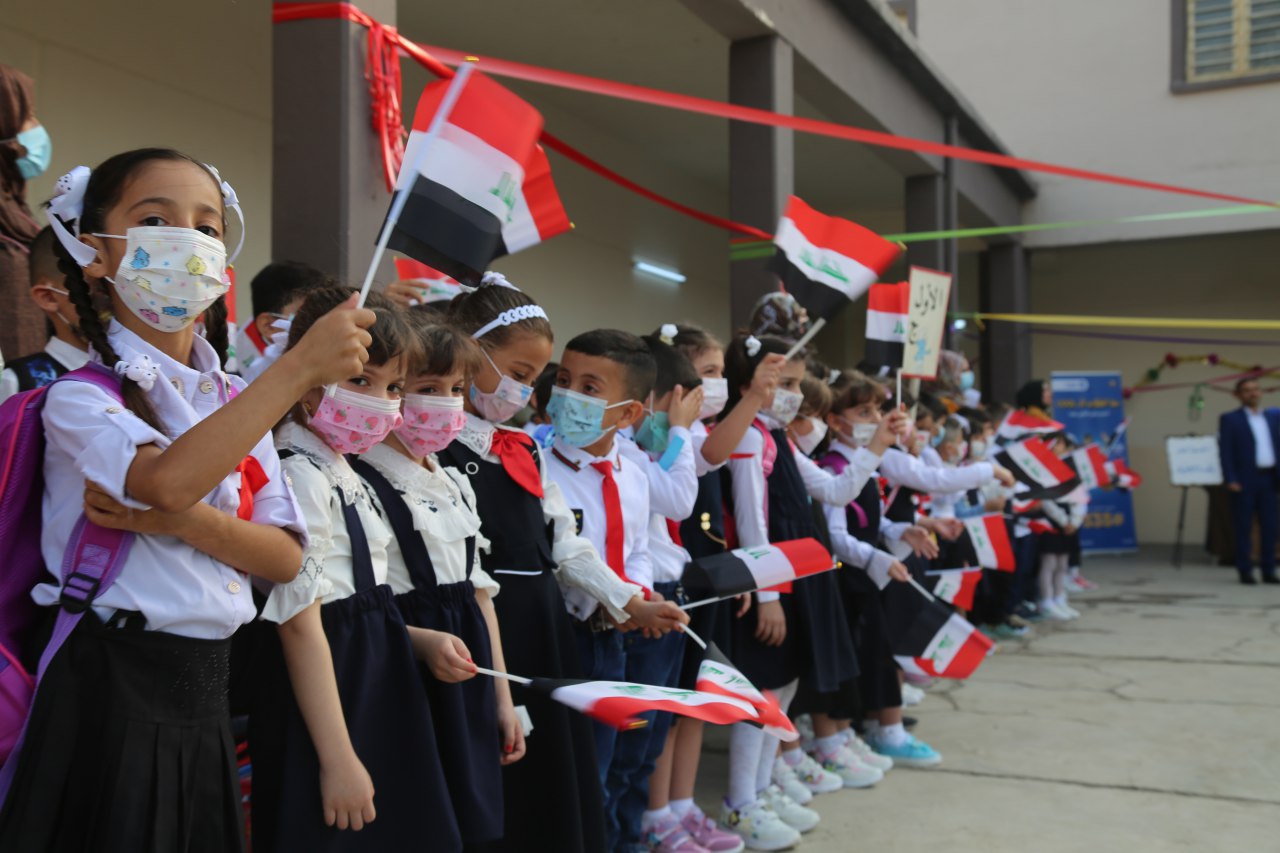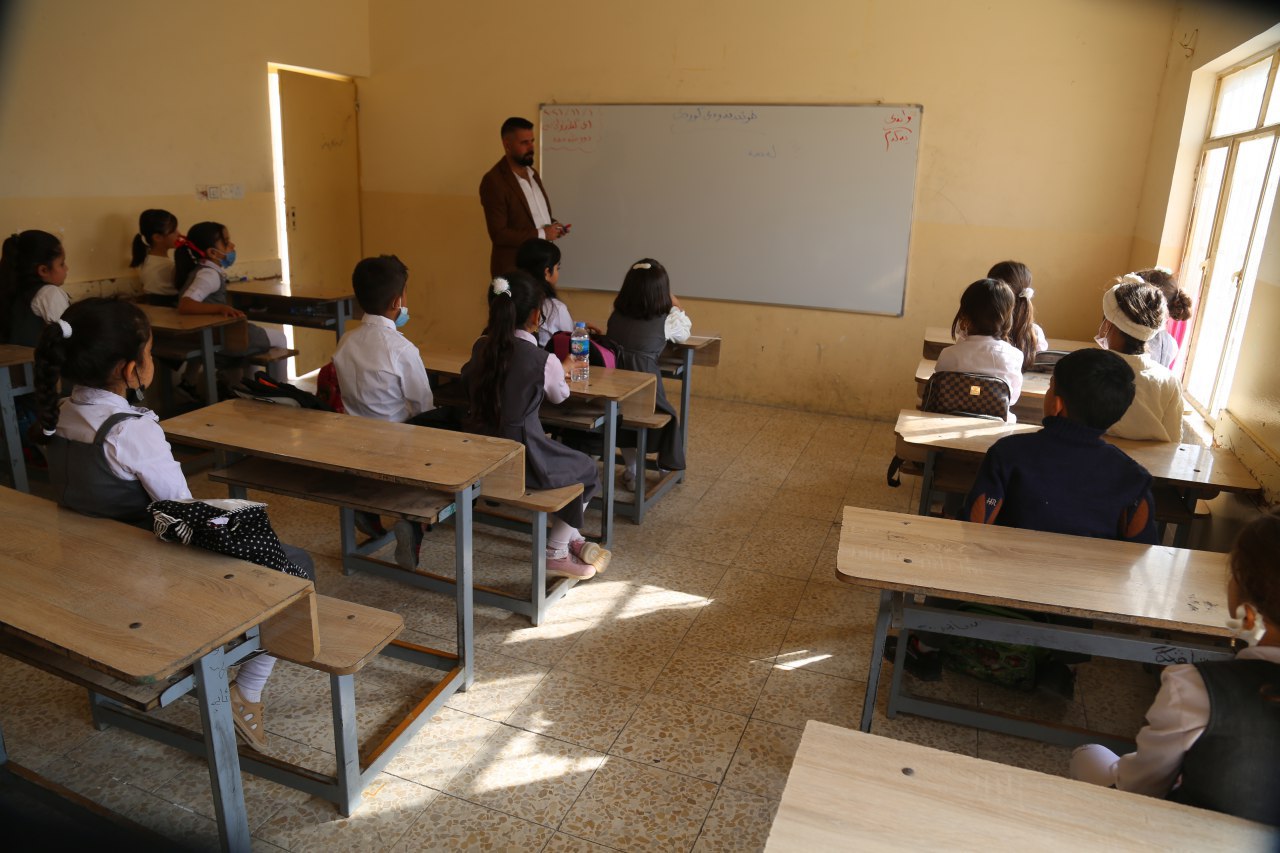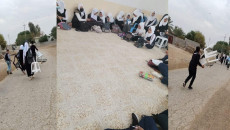Tutors and some parents of students criticize the mechanism used this year in schools, and consider that it will not bring any benefit to their children, and that they "do not learn well", but the Education Directorate says that this is "in order to preserve the safety of students."
According to a decision by the Iraqi Ministry of Education, class teaching will ber four days a week, while distance learning (online) for two days, and the decision is applied in all parts of Iraq except for the Iraqi Kurdistan Region IKR, as part of the measures aimed at preventing the spread of the Corona virus.
Qasim Muhammad, a resident of Kirkuk, who has two children at school, says, "For distance teaching, I do not call it education because they do not learn anything in this way. They spend their time busy with smart phones only. Last year experience taught us they have not learned anything."
With the exception of the 15 days in which the teaching was in classroom, the entire educational process during the past year took place remotely, and the full curricula were not covered.
Located 238 kilometers north of Baghdad, the oil-rich city of Kirkuk is an ethnically mixed province for 1.6 million Kurds, Arabs, and Turkmen, Muslims, Christians and Kaka'is. It has long been at the center of disputes between Baghdad and the Erbil.
Shawbo Muhammad, whose child is studying in the third grade of primary school, said "My son does not recognize letters well, he gets confused in numbers and he have not learned to write while he is in the third grade and should have been able to read and write now."
"I do not consider the two days in which he studies remotely as education, as studying in this way is not like the one in which the teacher is in the classroom watching them and questioning them."
The teachers are present at the school six days a week. For the two days in which teaching is at distance, the teacher records the lessons and sends it to his students through Telegram application.
"I watch my children constantly, but I feel that remote study is degrading their performance and they do not care about it, so how about if I give the child a mobile device?" Muhammad said.
"There is also a problem of power outages during the morning, which may lead to the internet interruption, devices out of charge which are big problems."
Iraq’s education infrastructure is in ruins in many parts of the country; one in every two schools is damaged and needs rehabilitation, says a report by UNICEF about education in Iraq.
A number of schools operate in multiple shifts in an attempt to accommodate as many students as possible, squeezing the little learning time that children have.

Kirkuk, November 1st 2021: first day of new academic year. Karwan Al-Salihi
Local officials said they are not authorized to address the concerns of the parents since the procedures are central by the ministry for schools all over the country.
Omar Qader, Deputy Director General of Kirkuk Education told KirkukNow, "Whether this method of education is good or not good, we are obliged to implement it because the Ministry of Education ordered it."
"This mechanism is important to maintain the health and safety of students which at the same time harms the learning of students."
Kirkuk Health Department has placed citizens in front of two options by receiving the Corona vaccine in order to protect themselves or facing more severe consequences, as part of the measures aimed at confronting the Corona epidemic as schools open doors for in class education in Autumn season where temperature drops down.
The warning of the Directorate general of health in Kirkuk is a precautionary measure in fears of a "stronger and tougher" wave of the Covid pandemic given that the virus is constantly mutating and potential strains of the virus to appear particularly in colder seasons, at a time when cases of infection in Kirkuk are witnessing an increase due to the start of the new school year.
In the latest step, the Iraqi Ministry of Health decided, based on the recommendations of the World Health Organization WHO, to grant the Pfizer-BionTech vaccine to starting from 12 years and over, coinciding with the start of the new school year on November 1, 2021.
The Arab, Kurdish and Turkmen study departments in Kirkuk are committed to the decision of the Iraqi Ministry of Education though in general they complain about the failure to take into account some points before issuing the decision including the inability of all families to secure the requirements for remote study, in terms of computers, smart phones and internet service.
Sherzad Rashid Kaka, director of the Kurdish Studies Department in Kirkuk, told believes "The ministry's decision will negatively affect the students' levels. The student's level will improve if he is present in class throughout the week."
Sayran Hadi, education expert, thinks distance education in Iraq comes with the meaning of "undermining the school system and education."
Distance education system cannot deliver even 40% of the information to the student
"The distance education system cannot deliver even 40% of the information to the student. In this case, parents must carefully monitor their children," Hadi added.
She believes the government should have taken into grant that online education is new to Iraq and not all families can afford appliances and service required for electronic education
"It is important for the government to take into account the scientific and cultural level of the student and the families' understanding of the meaning of the distance education system."
"Two years after the emergence of Corona, we feel that no appropriate solutions have been taken for school system and that it is falling apart," Hadi concluded.






